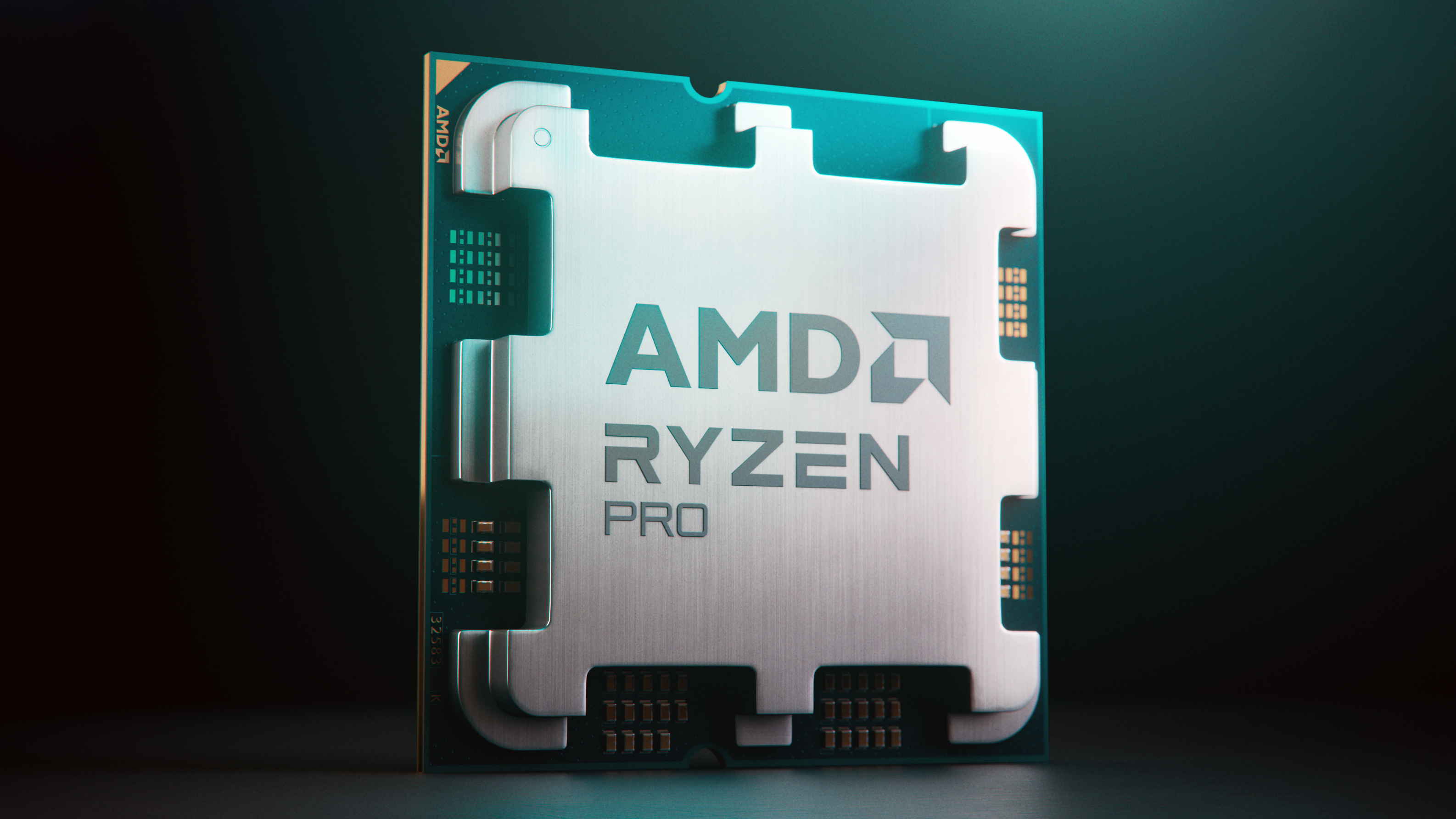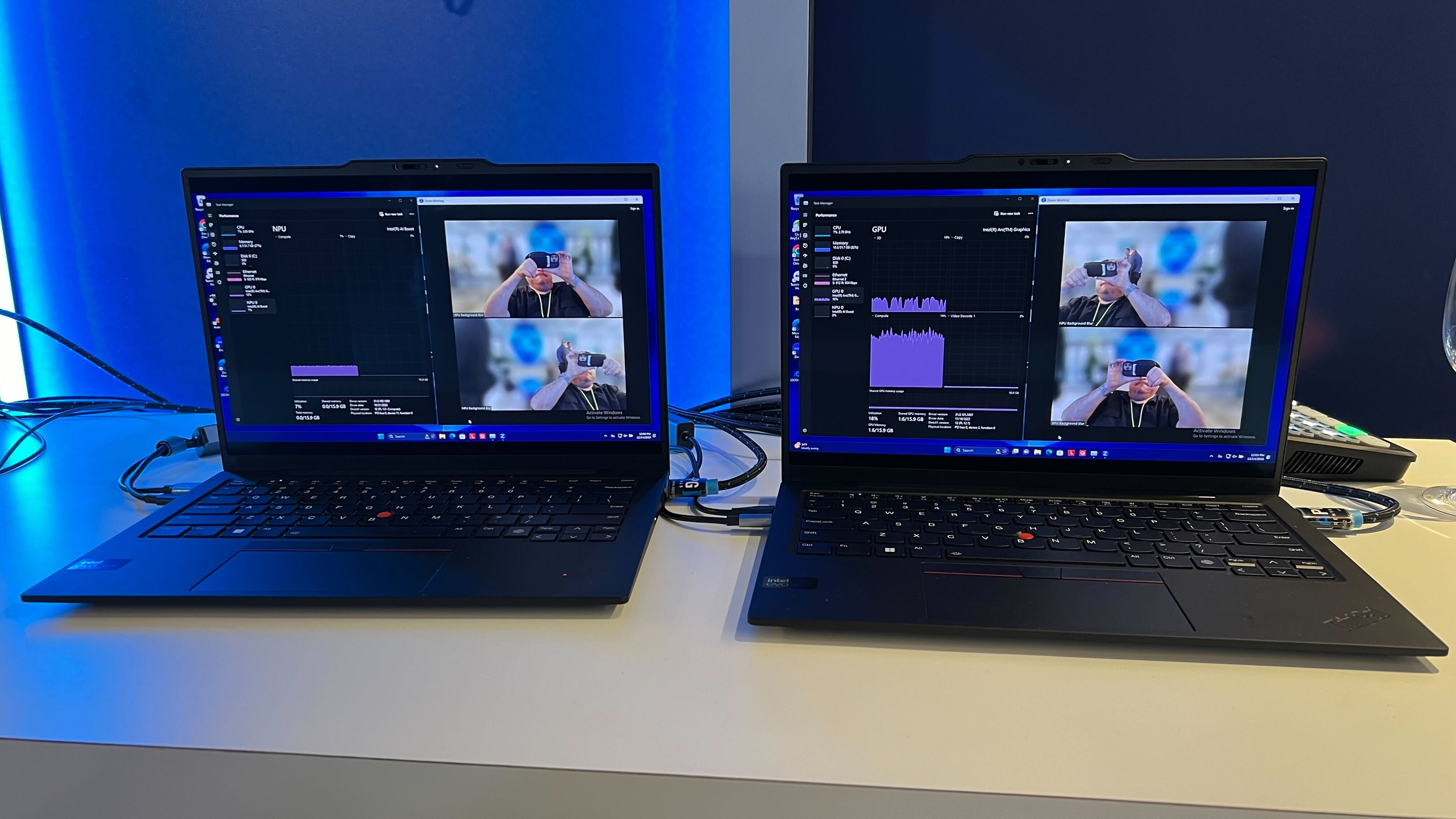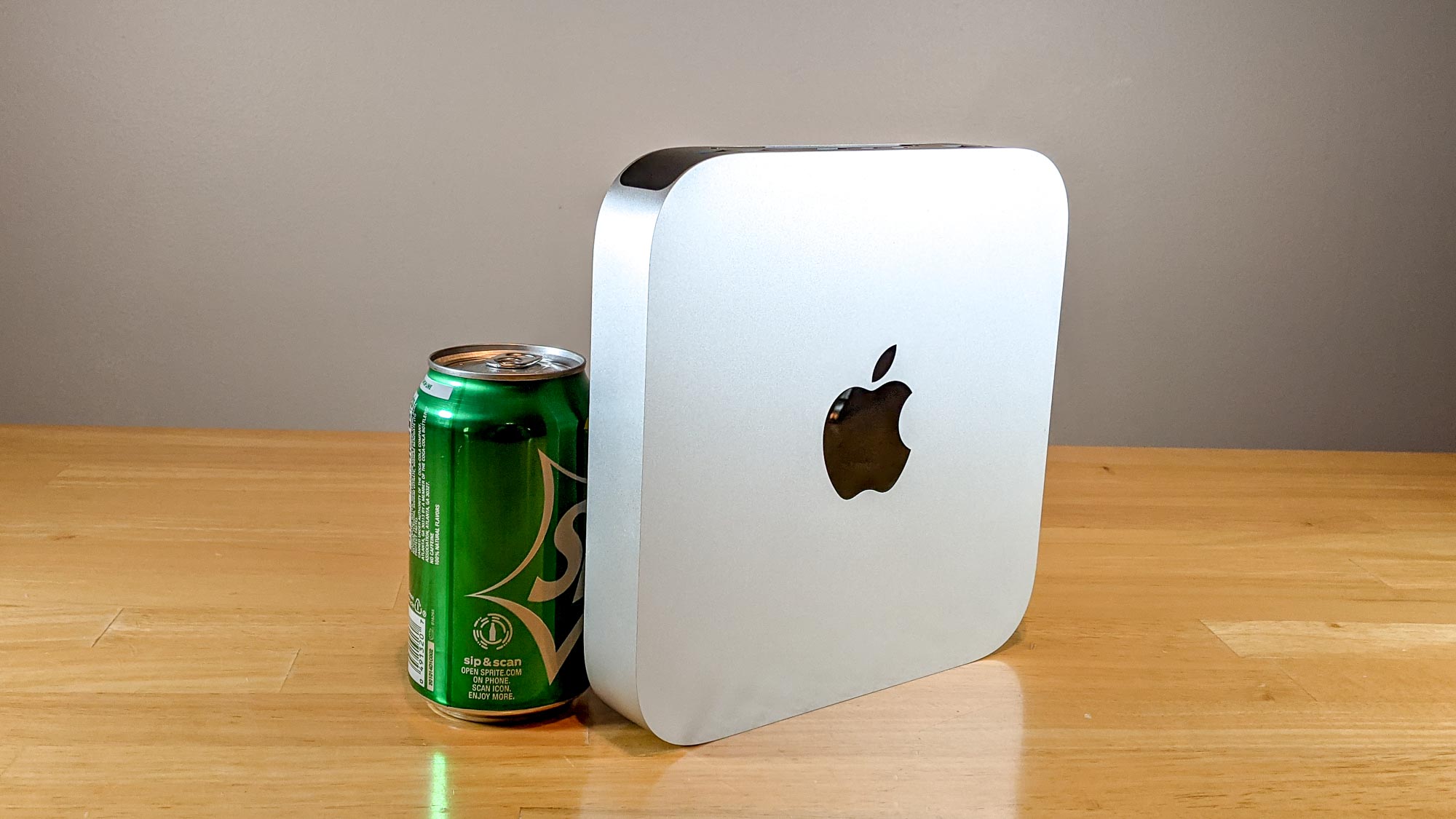
Today, AMD announced a bumper crop of new "Pro" CPUs that will start appearing in business laptops and desktops launching this year, including a few desktop chips with dedicated AI processors.
These chips join the existing AMD Hawk Point line of laptop and desktop CPUs launched in late 2023, but since they're intended for business use, they'll be marketed as AMD Ryzen Pro chips. This is a big deal for the whole industry, not just AMD fans, because AMD beat Intel to the punch by offering the first non-Apple desktop chips I've seen that come with a built-in NPU (Neural Processing Unit).
These NPUs have been all the rage in Windows PCs ever since Microsoft kicked off the AI race last year by launching Bing with ChatGPT, but until now, I've only ever seen them in Windows laptop CPUs like AMD's Hawk Point chips and the Intel Meteor Lake processors. The fact that AMD is rolling out the first desktop chips I've ever seen with NPUs onboard is exciting because it means we'll finally get a sense of what a difference (if any) having a built-in NPU onboard makes in terms of desktop performance.
If you're not familiar, these NPUs are dedicated sections of the chip equipped with processors optimized for the kind of low-level processing that many AI workloads require. If a GPU is optimized for graphics, for example, then the NPU is optimized for AI work.

That's a vast oversimplification, but the important part to know is that these NPUs are typically more efficient than other parts of your CPU at tasks like blurring the background of your camera on video calls. By taking over the grunt work of these "AI" tasks, the NPU can theoretically free up your CPU to do other things, and that can have the knock-on effect of better battery life in a laptop since it doesn't have to work as hard or expend as much power.
AMD and Apple have been shipping laptop chips with NPUs built in for some time, whereas Intel was a bit late to the game, only adding NPUs into the mix with its new Meteor Lake chips. And until now, neither AMD nor Intel had shipped desktop CPUs with NPUs, though, of course any Apple desktop with an M-series chip (from the Mac mini M1 to the Mac Studio M2) has a built-in NPU.

There are a lot of under-the-hood differences between Mac and Windows PCs, however, so I'm keen to find out what it means to use a Windows 11 desktop with an NPU onboard. The only way to do that, however, is to test one of the new business-minded laptops or desktops shipping from partners like HP and Lenovo this year with AMD's new CPUs onboard.
We've got the full list of new chips announced by AMD today charted below, which is worth skimming because only (the more expensive) half of the 8 new desktop Ryzen Pro 8000 series CPUs come with a dedicated AI engine onboard. The new Ryzen Pro 8040 business laptop chips, however, all come with NPUs and support for Ryzen AI, save the least expensive chip.
New Ryzen Pro 8000 series desktop CPUs
Here's the full list of new Ryzen Pro 8000 series desktop CPUs that AMD unveiled this week, all of which are expected to start showing up in business desktops from partners like HP and Lenovo very soon. As these are intended for use in desktops sold to enterprises and businesses at scale (say, for IT department use) there are no prices currently available to buy these as individual chips.
New Ryzen Pro 8040 series laptop CPUs
AMD also added 8 new models of "Pro" chips to its Ryzen 8040 family of laptop CPUs, and all of them, save the cheapest, come with support for Ryzen AI.
Outlook
While these chips are built for business PCs and thus likely won't impact most of us as much as, say, the upcoming Apple M4 chip might, the arrival of AMD's first AI-ready desktop CPUs is a significant milestone. This could be our first opportunity to see what a difference, if any, an onboard NPU makes in a cutting-edge Windows desktop.
This is important because the term "AI" has become pretty nebulous over the past year as tech companies race to promote products with it, and it's been challenging to separate the hype from the reality. I've seen some jaw-dropping uses of AI over the past year, most notably by my colleague Ryan Morrison (check out what he's doing with Google Gemini 1.5 and music). but the "AI laptops" we've reviewed thus far have been pretty disappointing.
From the perfectly fine but not impressive Acer Swift Go 14 to the lovely but uninspiring Asus Zenbook 14 OLED, every Intel Meteor Lake laptop we've tested this year has failed to justify the "AI laptop" marketing. They didn't have noticeably better battery life than their predecessors, for example, despite one of the key selling points of an "AI laptop" being the promise of better battery life.
This is a problem because the best MacBooks have spent years running circles around the best Windows laptops in terms of battery life, and Windows laptop makers could really use a win in that department. Yet it doesn't appear as though Intel's Meteor Lake chips have been able to deliver that win, at least on the models we've reviewed so far. We haven't yet had a chance to review a lot of laptops packing AMD's new Hawk Point 8040 CPUs, and I'm hopeful that we'll see better performance out of them than we have from Intel's laptop chips thus far. Stay tuned!







